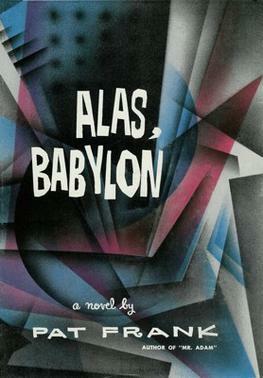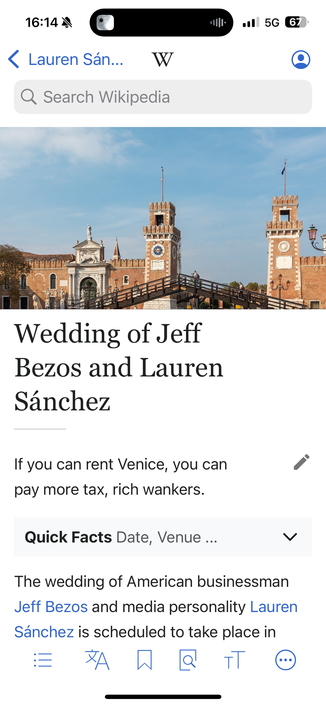2025-09-11 08:38:40
Gestern bin ich auf "The Disintegration Loops" von William Basinski gestoßen.
https://www.youtube.com/watch?v=mjnAE5go9dI
Heute ist der 11. September, und zieht Euch bitte den Wikipedia-Artikel zu den Disintegration Loops rein (https://en.wikipedia.org/wiki/The_Disintegration_Loops). Wahnsinn!
Auszug:
Basinski finished the project the morning of the September 11, 2001 attacks in New York City, and sat on the roof of his apartment building in Brooklyn with friends as the World Trade Center collapsed. He filmed the fallout during the last hour of daylight from a roof, and the following morning he played "Disintegration Loop 1.1" as a soundtrack to the aftermath. Stills from the video were used as the covers for the set of four CDs, and several weeks later Basinski dedicated the work to the victims in a postscript in the liner notes. He said that "the events gave new meaning to the musical pieces created by catastrophic decay in my studio a few weeks before."
2025-08-02 20:15:05
Given that FFOTUS seems to be asking for a (probably nuclear) war with Russia I guess there are some books we should read and films we should watch
I'd start with these two, the second is one of the most terrifying films I've ever seen (it builds slowly to the climax, so be patient.)
Alas, Babylon - https://
2025-06-28 14:15:42
Wikipedia right now
https://en.wikipedia.org/wiki/Wedding_of_Jeff_Bezos_and_Lauren_Sánchez
2025-07-01 01:35:52
(Did you know that in the original stage version of The Sound of Music, the thing that finally breaks Captain von Trapp’s engagement to the baroness isn’t the vague, wishy-washy “noble unstated feelings” scene that’s in the movie (and which never worked in my view, despite the actors giving it their all); it’s that the baroness tries to convince him to go along with the Nazis because there’s nothing he can do, and he decides he can’t marry a woman with no convictions. They cut the song from the film: https://en.wikipedia.org/wiki/No_Way_to_Stop_It)
2025-07-26 13:57:28
Hays Code - Wikipedia
https://en.wikipedia.org/wiki/Hays_Code
2025-09-05 10:19:21
MultiWikiQA: A Reading Comprehension Benchmark in 300 Languages
Dan Saattrup Smart
https://arxiv.org/abs/2509.04111 https://arxiv.org/pdf/2509.04111
2025-07-18 20:12:03
There’s a new #OpenStreetMap website feature related to #Wikidata!
When viewing objects in OSM that have a Wikidata tag, you can now click the Wikidata icon to turn the opaque QID values into human-readable info (plus a link to Wikipedia if any).
2025-08-05 10:34:05
It's time to lower your inhibitions towards just asking a human the answer to your question.
In the early nineties, effectively before the internet, that's how you learned a lot of stuff. Your other option was to look it up in a book. I was a kid then, so I asked my parents a lot of questions.
Then by ~2000 or a little later, it started to feel almost rude to do this, because Google was now a thing, along with Wikipedia. "Let me Google that for you" became a joke website used to satirize the poor fool who would waste someone's time answering a random question. There were some upsides to this, as well as downsides. I'm not here to judge them.
At this point, Google doesn't work any more for answering random questions, let alone more serous ones. That era is over. If you don't believe it, try it yourself. Between Google intentionally making their results worse to show you more ads, the SEO cruft that already existed pre-LLMs, and the massive tsunami of SEO slop enabled by LLMs, trustworthy information is hard to find, and hard to distinguish from the slop. (I posted an example earlier: #AI #LLMs #DigitalCommons #AskAQuestion





